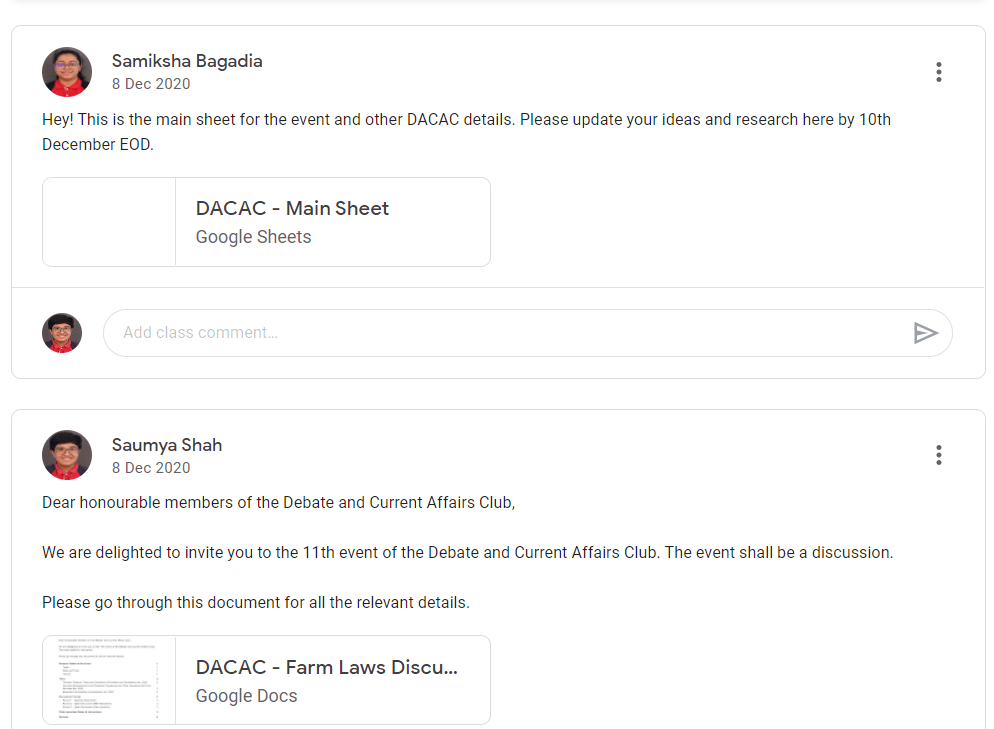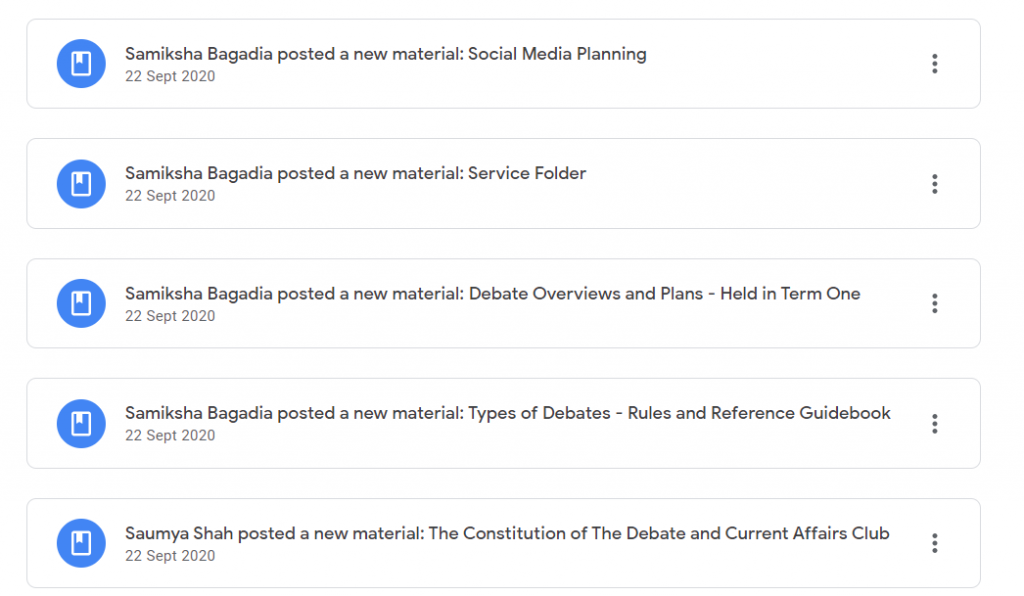Me and some of my fellow G12 students founded and are coleading a club where we plan, organise, and execute regular debates on topics of local and global significance, as well as discussions of current affairs. We are all co-leaders, and pairs take up the responsibility to facilitate the session.
I have an interest in and am skilled in debating, including different forms, such as MUNs, Socratic Seminars, etcetera, and I have an interest in staying updated on current affairs, and therefore, to further improve upon these skills and to explore and evaluate multiple perspectives on issues of personal, local, and global significance. I will also use my research skills to gather more information regarding the topic at hand.
We also raised awareness of various forms of debate and international issues by helping and training MYP and DP faculty to organise debates for students like MUNs and discussions.
Learning Outcomes:
LO 1: Identify their own strengths and develop areas for personal growth.
I achieved this LO by reflecting, assessing and evaluating the debate and my performance after each session, by identifying my strengths and weaknesses. For example, I identified that I am able to speak more confidently and persuasively when I research well and draft my speeches beforehand. This realisation helped me improve my debating style in general, and helped to develop and improve my communication skills.
LO 2: Demonstrate that they have undertaken challenges, developing new skills in the process.
I achieved the second LO by placing myself in difficult situations in debates, such as by trying out different debating styles (like impromptu speeches) and by debating against my own position and opinion. Though this was challenging for me at first, it helped me improve on my thinking and communication skills by allowing me to think more flexibly and critically evaluate an issue from different angles, and helped increase my confidence and articulation, thus improving my communication skills.
LO 3: Demonstrate how to initiate and plan a CAS experience.
Sessions required a lot of planning and coordination in order to accommodate people’s preferred timings, topics, suggestions, etcetera. Mostly, it required coordination between ourselves (while voting for topics and timings), and sometimes it required coordination with teachers and other students (deciding mutually acceptable timings and topics, coordinating invites and suggestions for different sections, etcetera) when we organised debates for them. Therefore, this will definitely help me collaborate and plan events effectively in the future.
LO4: Show commitment and perseverance in their CAS experience.
This project required a lot of commitment and perseverance, as lots of time and effort had to be committed on a regular basis to plan and organise debates, create debate documents, and research and prepare for debates.
LO5: Demonstrate the skills and recognize the benefits of working collaboratively.
It is generally a little difficult for me to work and collaborate with others, as I tend to do better on my own. This project required coordination and collaboration on a regular basis within debate teams, organising committees, and sometimes with senior school teachers. It was important to work collaboratively in debates by cooperating with your teams so that there is no repetition of arguments and communication is concise, and so that the opponent’s points are effectively countered.
LO6: Demonstrate engagement with issues of global significance.
By its very nature, our club was dedicated to exploring, researching, and discussing issues of local and global significance, like freedom of speech, patriotism, protests, politics, economics, and other pressing issues of the day. This helped make us all aware of what was going on throughout the world, and helped us develop multiple perspectives on global issues.
LO7: Recognise and consider the ethics of choices and actions.
This project required certain ethical boundaries and choices, such as researching through authentic sources, not propagating misinformation or propaganda, and not personally attacking the opposing team. To effectively enforce these ethical boundaries, I wrote a constitution for our club which devised rules and consequences both inside and outside of sessions.
LPs Displayed:
Knowledgeable – I applied my knowledge of current affairs and different forms of debate to make effective rebuttals and points in debates, adhering to the format for a fruitful discussion.
Thinker – I used creative and critical thinking skills by thinking of different perspectives and points regarding the topic, and evaluating their validity and their impact.
Communicator – I used and developed my communication skills in the debate to effectively put across my points.
Principled – I showed integrity while debating and did not personally attack or offend the opponents.
Open-Minded – I considered and evaluated multiple perspectives, for which I required an open mind.
Risk-Taker – I put myself in new situations by trying out different forms of debate and debating for different perspectives (not necessarily my own).
Reflective – I reflected upon my participation and performance in different forms of debate to identify my strengths and weaknesses to work upon and overcome them.
Saumya Shah
G12 Sangfroid
Evidence:
Patriotism vs Nationalism (screenshots from recording):
Classroom:
Constitution:


